
The Royal College of Surgeons of England is an independent professional body and registered charity that promotes and advances standards of surgical care for patients, and regulates surgery and dentistry in England and Wales. The college is located at Lincoln's Inn Fields in London. It publishes multiple medical journals including the Annals of the Royal College of Surgeons of England, the Faculty Dental Journal, and the Bulletin of the Royal College of Surgeons of England.

Sir William Macewen, was a Scottish surgeon. He was a pioneer in modern brain surgery, considered the father of neurosurgery and contributed to the development of bone graft surgery, the surgical treatment of hernia and of pneumonectomy.
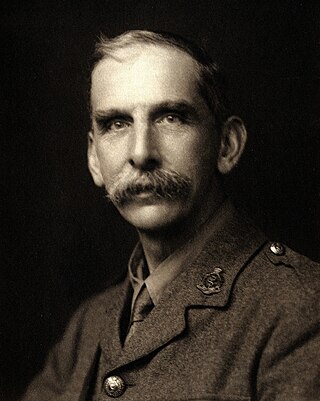
Sir Victor Alexander Haden Horsley was a British scientist and professor.

Major General Sir Neville Reginald Howse, was an Australian Army officer, medical doctor, and politician. He was the first Australian recipient of the Victoria Cross (VC), the highest decoration for gallantry "in the face of the enemy" that can be awarded to members of the British and Commonwealth armed forces.

Richard Quain was an English anatomist and surgeon, born at Fermoy, Ireland, a brother of Jones Quain. He studied medicine in London and in Paris. He was appointed demonstrator in 1828 and professor of anatomy in 1832 at the University of London, resigning in 1850, and assistant surgeon in 1834 and surgeon in 1848 to the North London Hospital, from which he resigned in 1866. He was president of the Royal College of Surgeons in 1868.

Sir Francis Henry Laking, 1st Baronet, was an English physician who was Surgeon-Apothecary in Ordinary to Queen Victoria, and Physician-in-Ordinary to King Edward VII and King George V.
Russell Claude Brock, Baron Brock was a leading British chest and heart surgeon and one of the pioneers of modern open-heart surgery. His achievements were recognised by a knighthood in 1954, a life peerage in 1965, and a host of other awards.

Sir Nicholas Attygalle was a Ceylonese academic, surgeon and a Senator. He was the President of the Senate of Ceylon from 1953 to 1960 and the first Ceylonese Vice-Chancellor of the University of Ceylon, where he was known as the "Iron Vice Chancellor".

Sir Frederick Treves, 1st Baronet, was a prominent British surgeon, and an expert in anatomy. Treves was renowned for his surgical treatment of appendicitis, and is credited with saving the life of King Edward VII in 1902. He is also widely known for his friendship with Joseph Merrick, dubbed the "Elephant Man" for his severe deformities.
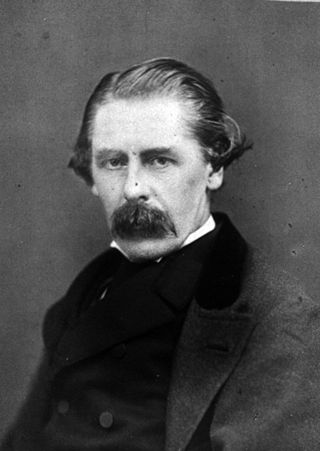
Sir Henry Thompson, 1st Baronet, was a British surgeon and polymath. His interest was particularly in the surgery of the genito-urinary tract.

Sir Hugh Lett, 1st Baronet, was a British surgeon with a special interest in urology and headed the London Hospital's genito-urinary department for many years.

Sir Francis Gordon Bell, FRCS, FRCSEd, FRACS was a New Zealand surgeon who was professor of surgery at the University of Otago at Dunedin. He was a founder member of the Royal Australasian College of Surgeons and was elected its president in 1947. In the 1953 Coronation Honours, Bell was appointed a Knight Commander of the Order of the British Empire.

Lieutenant Colonel Sir Herbert Lightfoot Eason CB, CMG, MD, MS, FRCS. ) was an ophthalmic surgeon who served in the Great War as a Lieutenant Colonel and Consultant Surgeon to the Forces in Egypt and at Gallipoli. He was appointed Superintendent at Guy's Hospital, London, in 1920, Vice Chancellor from 1935 to 1937 of the University of London. President of the General Medical Council from 1939 and was Knighted in 1943 for his services to medicine.
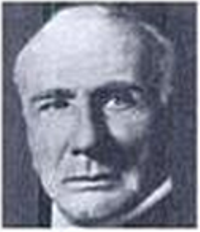
Sir George Lenthal Cheatle, was a British surgeon who made important contributions to the diagnosis and treatment of breast cancer.

Sir Anthony Alfred Bowlby, 1st Baronet was a British Army officer, surgeon and pathologist.

Sir Henry Morris, 1st Baronet FRCS was a British medical doctor and surgeon, president of the Royal Society of Medicine and the author and editor of significant works on anatomy. He was also known for his work in the field of cancer.
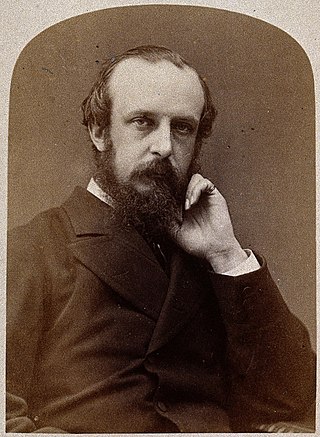
Christopher Heath FRCS was an English anatomist and general surgeon
The 1902 Coronation Honours were announced on 26 June 1902, the date originally set for the coronation of King Edward VII. The coronation was postponed because the King had been taken ill two days before, but he ordered that the honours list should be published on that day anyway.

John Chiene, CB, LLD, MD, FRSE, FRCSEd was a Scottish surgeon, who was Professor of Surgery at the University of Edinburgh during some of its most influential years. He was a founder of the Edinburgh Ambulance Service. The Chiene Medal is presented as an annual prize in surgery at the University. He served as President of the Royal College of Surgeons from 1897 to 1899.
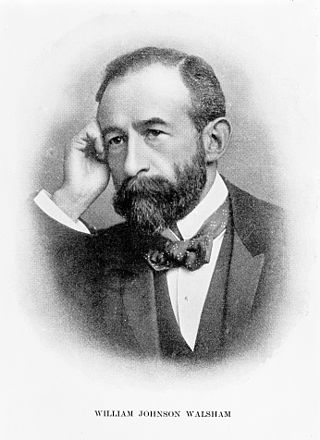
William Johnson Walsham was an English surgeon.


















